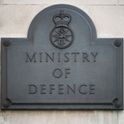There is something different about the independent statutory inquiry into war crimes in Afghanistan. And what makes it different should be making some very senior people very worried indeed.
There is a familiar and depressing pattern when something goes wrong in a large organisation. Take, for example, the phone-hacking scandal in the British media. Reporters and the occasional newspaper editor were caught up with criminal liability, while senior executives took the benefit of what seemed a firewall which kept them safe from legal peril.
In the military context, in scandal after scandal, it has been the junior servicemen and women who have faced exposure and disgrace while the officer class has tended to escape culpability and dishonour. Those in positions of oversight and responsibility always seem to avoid being held to account. With cases concerning torture in Iraq, for example, only one soldier was ever convicted, while judges complained of the closing of ranks.
But with the Afghan war crimes inquiry there is a difference. This is certainly not to say senior people were directly responsible for the alleged executions of detained and unarmed Afghans. It is, however, to say that the inquiry from the very beginning is looking at how far up the chain of command things were known about and accepted, and the extent to which there was a cover-up.
This difference can be shown in two ways. First, the very terms of reference of the inquiry are framed so that questions about who knew what and when are central to its investigations: look at the second, third and fourth paragraphs of the terms of reference here.
And second, it can be seen in the evidence that the inquiry has released into the public domain. In particular, we now know of a memorandum from 2011 where a field commander of UK special forces sets out his concerns about the killings of detainees and about fabricated evidence to hide what had happened.
This memorandum was sent to the director of special forces. And the concerns set out were expressly stated to be more than mere rumours. The information was such, the author of the memorandum said, that a thorough investigation was warranted. Such a memorandum could not have been written and sent lightly, and its creation was no doubt intended to have consequences.
A good part of the work of the inquiry will be about what happened, if anything, in response to this memorandum being presented to the top of the special forces command. But what cannot be disputed is that senior people knew, in 2011, that there were well-grounded concerns that required an investigation. It thereby cannot be denied, plausibly or otherwise, that senior officers knew nothing of concerns about war crimes.
And so, at a stroke, the issue has moved on from “what did they know or suspect?” to “what did they do with their knowledge and suspicions?” This is far trickier ground for senior people to deal with, for there can be no real prospect of a “we did not know or even have reason to suspect anything” set of defences.
There has already been evidence to the inquiry of regret within the Ministry of Defence that the content of that 2011 memorandum was ever written down. But what is circulated in a memorandum cannot be uncirculated. And for 13 years, the memorandum has sat there, waiting for its very existence to have consequences.
Of course, there is a difference between a thing being the case and a thing being worthy of investigation and concern. The memorandum, in and of itself, does not prove that any war crimes actually took place. It may be that in each and every case of a detained Afghan being killed by UK special forces there was an ethical and lawful justification, and that the markedly unpersuasive explanations for why this kept happening all turn out to be true. Perhaps.
But even if, on the ground, all conduct was above board, there will still be the question of what, if anything, happened at the senior level in response to the 2011 memorandum. And finding the answer to this question is important even if a thorough investigation would exonerate the special forces concerned.
There can be no closing of the ranks, because the 2011 memorandum—and maybe other evidence not yet published by the inquiry—mean the ranks were prised open to begin with.
The very nature of this inquiry, therefore, is not just about what happened and did not happen in the field operations of special forces. It is squarely about what happened and did not happen when contemporaneous written concerns were expressed far up the chain of command.
Since at least 2011, senior MoD officials and military officers have known that there may have been serious problems with what UK special forces were doing with detained Afghans. But in legal case after legal case, they resisted disclosure of documents such as this until they realised its disclosure could no longer be stopped.
Now the memorandum is out in the open. And the inquiry—with statutory powers of compelling evidence—is tracing just what happened next, up chains of command and along lines of communication.
It will not be possible for senior people, with good lawyers and controls over evidence, to simply dump on the junior people. The senior people are implicated with awareness of what happened from the beginning of the inquiry.
This, of course, does not prove any wrongdoing. It may be that in each and every case of a senior person knowing there were grounds for serious concerns there was an ethical and lawful justification for what they then did and did not do. It may be that the markedly unpersuasive explanations for what did and did not happen all somehow turn out to be true. Perhaps.













